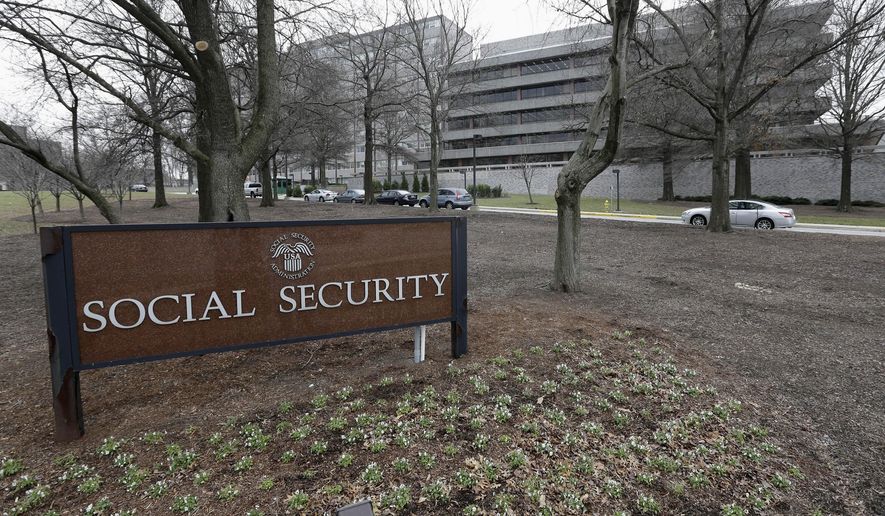ANALYSIS/OPINION:
Money’s tight for the federal disability insurance program. Unless Congress acts, the Disability Insurance Trust Fund will run out of money in 2016. At that point, nearly 11 million Americans would see their disability benefits cut by nearly 20 percent, leaving the average beneficiary below the poverty level.
Unfortunately, most of the talk about how to solve this problem has focused on “reallocating” payroll taxes. This means taking money away from the Social Security Trust Fund and giving it to the Disability Insurance Trust Fund. Robbery, then, would be a more apt term “reallocation.”
Robbing the Social Security piggy bank to pay disability benefits would lack even a Robin Hood defense — with an unfunded liability nearly 10 times as large, Social Security is undoubtedly poorer than the disability fund. Just because the disability fund will run out of money sooner than Social Security is no reason to rob it — and current and future retirees — of vital revenues.
To make matters worse, a payroll tax reallocation would set the stage for what economists call a “moral hazard.” Moral hazard exists when someone or something (a government program in this case) has an incentive to behave recklessly because it doesn’t bear the full consequences of its actions but can instead pass them on to others. If the disability fund can count on reallocations from Social Security, there will be little incentive for the disability program to address its shortcomings or control its costs. After all, the disability fund received a 50 percent increase in tax revenues as a result of a reallocation 20 years ago and has only grown in size and scope since then.
The program’s massive growth is the reason it’s running out of money. Since 1990, the share of working-age individuals receiving disability benefits has more than doubled — from 2.3 percent to 5.0 percent. As a result, total spending on the disability insurance program has exploded, doubling over just the last 10 years.
SEE ALSO: Social Security may have overpaid $19M to fraudsters
This growth has occurred despite improvements in health, a decline in mortality rates, and advancements in medical technology that enhance the health and physical well-being of Americans. Unfortunately, both because of the disability insurance program’s design and the persistent abuse of its purpose, many individuals have turned to the disability program as a long-term unemployment or an early retirement program, undercutting its purpose of providing benefits to truly disabled Americans.
The disability insurance program must be reformed. In addition to its well-documented susceptibility to fraud and abuse, the program is plagued with a subjective, inconsistent and obscure awards process. Its outdated and inflexible rules discourage individuals from remaining at or returning to work. Moreover, disability payments are not well coordinated with other government programs and are poorly administered.
It may be too late for reforms implemented today to produce sufficient savings to prevent the disability fund from becoming exhausted, but this is no reason to give the program a pass on a necessary overhaul. Rather than give the illusion of a fix by reallocating money from Social Security to the disability insurance program, the program could be allowed to temporarily borrow from the Social Security Trust Fund, as was done in 1983 when Social Security was temporarily allowed to borrow from the Disability Insurance Trust Fund. But just as a bank would not lend to a business without a credible plan for repayment, the Social Security’s trust fund overseers should not lend to the Disability Insurance Trust Fund before the program first establishes a credible plan to improve its integrity and solvency.
Federal disability insurance provides a crucial safety net for millions of disabled Americans who are unable to work. It is essential that Congress act quickly to reform the disability insurance program in ways that will bolster its ability to provide those unable to work with proper benefits while improving the solvency of the program to protect the hard-earned tax dollars of working Americans.
• Rachel Greszler is the senior policy analyst for economics and entitlements in The Heritage Foundation’s Center for Data Analysis.




Please read our comment policy before commenting.